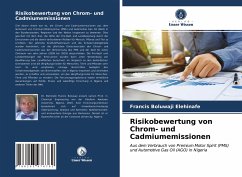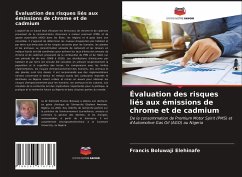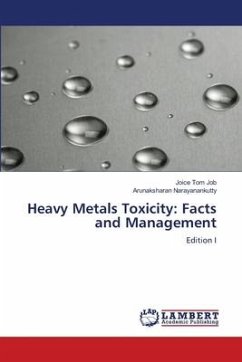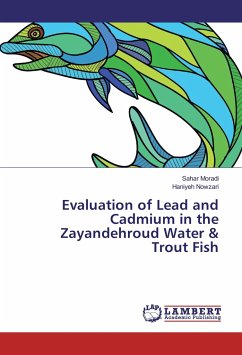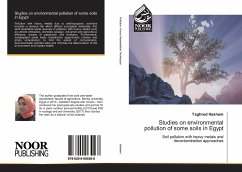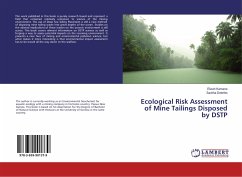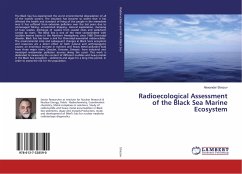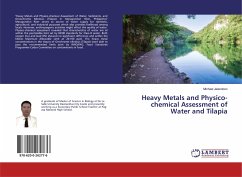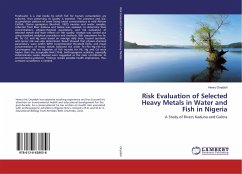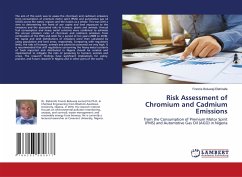
Risk Assessment of Chromium and Cadmium Emissions
from the Consumption of Premium Motor Spirit (PMS) and Automotive Gas Oil (AGO) in Nigeria
Versandkostenfrei!
Versandfertig in 6-10 Tagen
27,99 €
inkl. MwSt.

PAYBACK Punkte
14 °P sammeln!
The aim of this work was to assess the chromium and cadmium emissions from consumption of premium motor spirit (PMS) and automotive gas oil (AGO) across the states, regions and the nation as a whole. This was with a view to determining the levels of per capita and land exposures to the emissions and the associated risks to humans, plants and animals. Annual fuel consumption and heavy metal contents were combined to estimate the annual emission rates of chromium and cadmium emissions from combustion of the PMS and AGO for a period of ten years (2009 to 2018). Per capita and land distributions o...
The aim of this work was to assess the chromium and cadmium emissions from consumption of premium motor spirit (PMS) and automotive gas oil (AGO) across the states, regions and the nation as a whole. This was with a view to determining the levels of per capita and land exposures to the emissions and the associated risks to humans, plants and animals. Annual fuel consumption and heavy metal contents were combined to estimate the annual emission rates of chromium and cadmium emissions from combustion of the PMS and AGO for a period of ten years (2009 to 2018). Per capita and land distributions of emissions were then calculated by using population and land areas, respectively. Comparing with regulatory limits, the risks of humans, animals and plants be poisoned are very high. It is recommended that stiff regulations concerning the heavy metal contents of fuels imported and distributed in Nigeria should be created and implemented to mitigate the risks of poisoning to humans, animals and crops. The research findings have significant implications for policy, practice, and future research in Nigeria and in other parts of the world.



